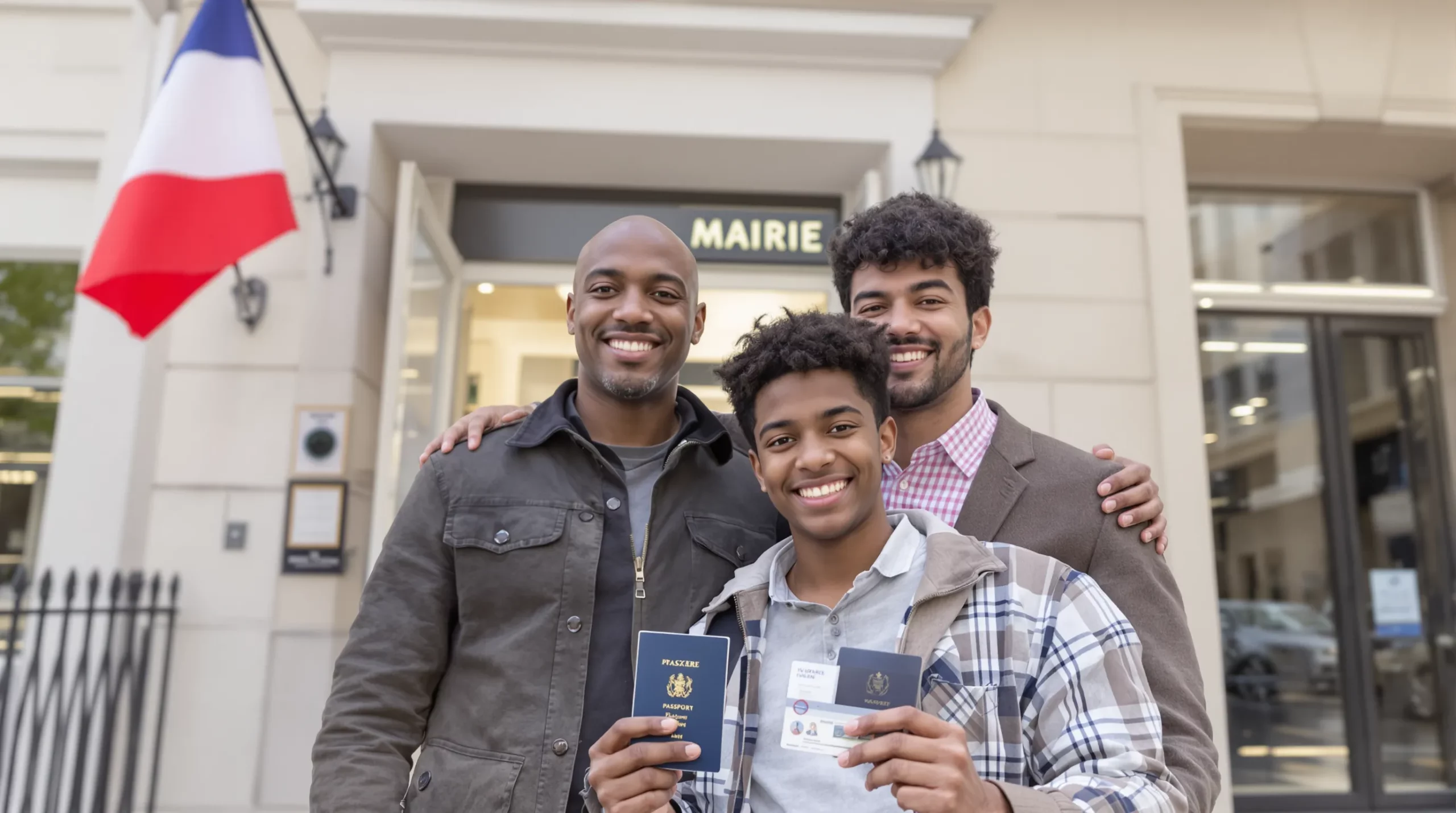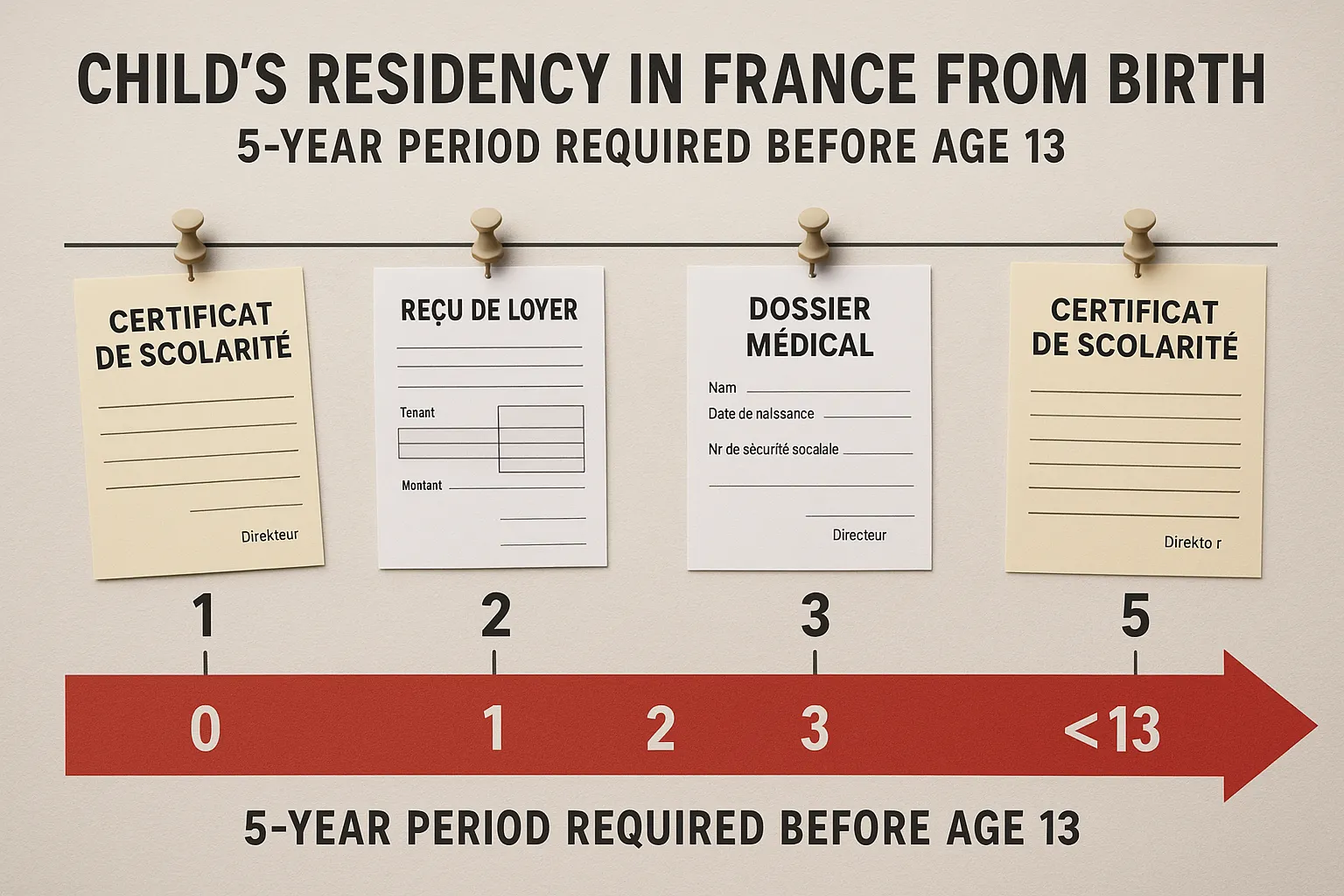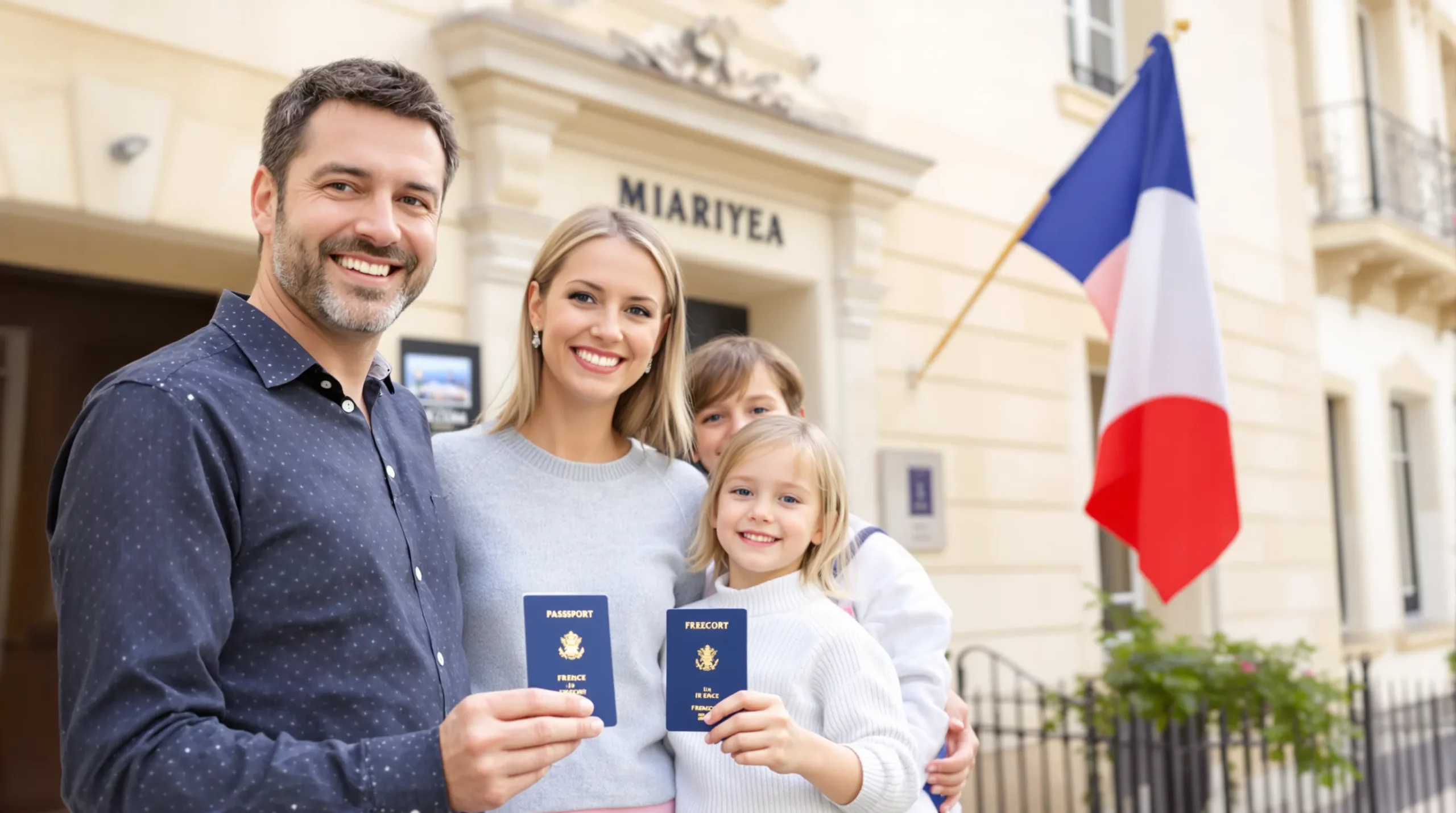Children Turning 13 in France: Pathway to Citizenship Under Article 21-7

When your child blows out 13 candles in France, the celebration can be more than a teenage milestone—it can mark the first real opportunity to secure a French passport. Article 21-7 of the French Civil Code gives foreign-born parents whose child was born on French soil a privileged pathway to citizenship, provided key residency conditions are met. This guide explains, in plain English, what Article 21-7 does, how the early-option declaration works between ages 13 and 16, and what practical steps you should start today to avoid unpleasant surprises at the prefecture in 2025 and beyond.
1. Article 21-7 at a Glance
| Requirement | Automatic Acquisition (Age 18) | Early Declaration (Age 13 – 16) |
|---|---|---|
| Child born in France | Yes | Yes |
| Parents’ nationality | Both foreign | Both foreign |
| Residence test | 5 years in France since age 11 and living in France on 18th birthday | 5 years in France since age 8 and living in France on declaration day |
| Who signs? | Nobody – automatic | Child + at least one parent (or legal guardian) |
| Formalities | None (citizenship becomes effective automatically) | Written declaration at the Tribunal judiciaire (Service de la nationalité) + supporting documents + €55 fiscal stamp |
| French passport timeline | Apply after 18th birthday | Immediately after declaration is registered |
Why consider the early declaration? Waiting until 18 is safe but slow. Early citizenship unlocks:
- EU freedom of movement for high-school trips and family travel
- Access to certain scholarships and competitive exams reserved for nationals
- Protection against OQTF risk for undocumented parents (child cannot be expelled)
- Less stress when planning university exchanges or overseas gap years
2. Do You Meet the Residency Clock?
The most frequent rejection ground is an interrupted 5-year residency period. The clock is cumulative, so short holidays abroad are fine, but long departures—especially undocumented exits—reset the count.
Practical tip: Keep school certificates, rent receipts, CAF attestations, vaccination records and sport-club memberships. They create a month-by-month paper trail that prefecture officers love.

What if you moved inside France?
Different départements? No problem. Different addresses inside the same département? Also fine. Just preserve evidence for every move. ImmiFrance offers a free 15-minute residency-check call to assess gaps and propose fixes (school attestations, sworn statements, or CPAM printouts).
3. Step-by-Step Early Declaration (13–16)
- Calendar planning
- Earliest filing date: Day the child turns 13.
- Latest: Day before 16th birthday (after that, you must wait until 18 for automatic acquisition).
- Gather civil documents (original + sworn French translation if needed):
- Long-form birth certificate of the child (copie intégrale) issued in the French commune of birth (valid < 3 months).
- Passports or ID of both parents.
- Parents’ birth certificates (or certified copies) with apostille/legalisation where applicable.
- Proof of legal guardianship if a parent cannot sign.
- Compile five-year residency proof (see Section 2 for ideas).
- Buy a €55 timbre fiscal online or at a tobacconist.
- Book an appointment with the Service de la nationalité at your local Tribunal judiciaire. Some courts allow walk-ins, but Paris, Lyon and Marseille now require online booking.
- File the declaration. The clerk verifies documents, the child and parent(s) sign before her, and you receive a receipt (récépissé).
- Government review (2–6 months). The Ministry of the Interior can oppose citizenship only for fraud or manifest lack of assimilation (extremely rare at this age).
- Collect the enregistrement certificate—this is the golden ticket to apply for a French ID card and passport the same day.
Good to know: A declaration filed outside the 13–16 window or without the parent’s signature is irrecevable (inadmissible). Re-filing means paying another €55.
4. Common Pitfalls—and How to Avoid Them
-
Unpaid fines or criminal proceedings
Minors rarely have convictions, but parents’ offences can cast doubt on assimilation. Resolve traffic fines, shoplifting cases or Amendes forfaitaires fast (see our guide on Public Order Issues). -
Parents in irregular status
Your child’s declaration cannot be refused because you are undocumented, but prefectures sometimes intimidate families. Know your rights and keep a copy of the ECHR case M.D. c/ France (2023) confirming the independence of a minor’s nationality claim. -
Missing translations/apostilles
Foreign birth certificates must be less than six months old and bear apostille/legalisation unless issued in an exempt country. Budget translation time; many families file late and lose one full eligibility year. -
Residency gaps due to overseas family trips
Trips under 6 consecutive months are tolerated, but more extended stays can break residency if repeated. Pro tip: Present exit/entry stamps and boarding passes to show temporary nature.
5. Taxes, CAF, and Social Security: Boosting the File
The law doesn’t require parental tax compliance, yet officers quietly check. Filing even a €0 French income tax return (see our first-year tax guide) demonstrates integration and can speed approval.
Similarly, CAF housing aid statements and CPAM attestations show everyday life rooted in France. ImmiFrance clients often attach:
- Extracurricular activity invoices (music school, sports licence)
- Vaccination booklet pages stamped by a French GP
- Library cards and certificates from communal French classes
These small details create a convincing mosaic the Ministry rarely challenges.
6. What Happens After Citizenship?
Once the enregistrement number is issued:
- Apply for a French passport at your mairie (expect 3–6 weeks turnaround in 2025 due to biometric chip supply issues).
- Request a French ID card (valid 10 years).
- Update CAF, CPAM, and scholarship records—entitlements may change.
- Parents may become eligible for a carte de séjour parent d’enfant français or vie privée et familiale permit if currently undocumented (see VPF permit guide).
- Plan ahead for future siblings—only those born in France can benefit from Article 21-7.

7. Timeline Recap
| Child’s Age | Key Action | Who Is Involved | Paperwork Focus |
|---|---|---|---|
| 0 – 8 | Build residency file | Parents | Birth cert, doctor visits, CAF, school registration |
| 9 – 12 | Audit documents, fix gaps | Parents + ImmiFrance adviser | Address continuity, translations |
| 13 | Earliest declaration date | Child & at least one parent | Full dossier + €55 stamp |
| 13–16 | Follow-up / possible re-filing | Family | Additional proof if requested |
| 16–17 | Wait period if not yet declared | — | Keep residence proof current |
| 18 | Automatic acquisition (if conditions met) | — | Apply for passport/ID |
Frequently Asked Questions
Does my child need to speak French fluently? Basic school-level ability is considered enough; there is no formal language test at this age.
Can the Ministry oppose the declaration? Yes, within one year for fraud or serious public-order concerns, but this is extremely rare for minors.
What if one parent refuses to sign? The declaration can proceed with the consent of any legal guardian; a family-court order may be required if disagreement persists.
Are children born by C-section in a French clinic but never registered at the mairie eligible? Yes, but you must first obtain a French birth certificate via the local procureur—ImmiFrance can help.
Does time spent in French overseas territories count? Yes, stays in DROM-COM (e.g., Réunion, Guadeloupe) are treated as French residence.
Ready to Secure Your Child’s French Passport?
A flawless Article 21-7 dossier often takes 60–90 days to assemble—longer if translations or apostilles are missing. ImmiFrance’s team can:
- Review your residency evidence and identify gaps
- Obtain fast prefecture or court appointments in high-demand zones
- Draft the declaration and accompanying cover letter
- Connect you with a specialised nationality lawyer if complications arise
- Track the Ministry’s response in real time through our secure portal
Book a free eligibility call today at immifrance.com and turn your child’s 13th birthday into the first page of their French passport.
